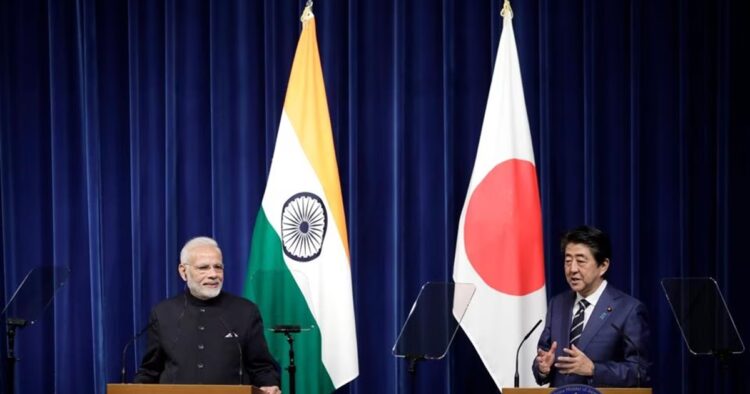In a significant move aimed at enhancing infrastructure and fostering development, Bharat and Japan have inked agreements for several crucial projects. These projects span various sectors and are poised to bring about substantial improvements in connectivity, healthcare, entrepreneurship, and environmental sustainability across different regions of Bharat.
One of the major highlights is the North East Road Network Connectivity project, which focuses on bolstering infrastructure in Bharat’s north-eastern region. This initiative is expected to enhance transportation networks, thereby facilitating better connectivity and economic growth in the area.
In addition, the Chennai Peripheral Ring Road project aims to address traffic congestion issues and strengthen transportation links in the southern part of the state. By improving road infrastructure, this project seeks to streamline traffic flow and enhance accessibility for commuters and businesses alike.
Furthermore, the agreements include initiatives such as promoting startup and innovation in Telangana, sustainable horticulture in Haryana, and climate change response in Rajasthan. These projects underscore the importance of fostering innovation, sustainable practices, and environmental resilience for long-term development.
The signing ceremony, presided over by Vikas Sheel, Additional Secretary of Bharat’s Department of Economic Affairs, and Suzuki Hiroshi, Ambassador of Japan to Bharat, marks a significant milestone in the bilateral cooperation between the two nations. It reflects their shared commitment to fostering growth and development through strategic partnerships and collaborative efforts.
Notably, these projects are not only geared towards infrastructure development but also aim to address specific societal needs. For instance, the project in Nagaland focuses on enhancing medical services by developing a medical college hospital, thus contributing to universal health coverage in the region.
Moreover, the initiative in Telangana aims to nurture entrepreneurial skills, particularly among women and rural populations, while also supporting the expansion of micro, small, and medium enterprises (MSMEs). Such targeted interventions are crucial for inclusive growth and economic empowerment.
The agreements also include the fifth tranche of the dedicated freight corridor project, which aims to modernize intermodal logistics systems and construct new dedicated freight railway systems. These efforts are expected to boost freight traffic handling capacity and enhance logistics efficiency.
Bharat and Japan share a long-standing history of bilateral development cooperation, dating back to 1958. The economic partnership between the two countries has steadily progressed in recent years, with mutual exchanges and collaborations across various sectors.
The exchange of notes for these important projects underscores the deepening strategic and global partnership between Bharat and Japan. As both nations continue to work closely together, these initiatives are poised to make significant contributions towards sustainable development and mutual prosperity.

















Comments